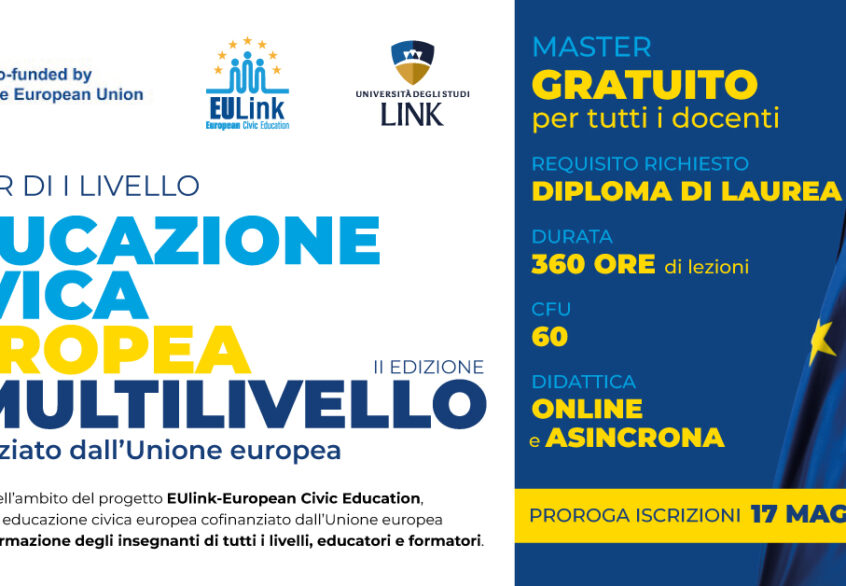1st level Master’s degree “European and multilevel civic education”, 2nd edition

Specific training objectives of the Course
The 1st level Master’s degree “Teaching European and multilevel civic education”, now in its second edition, will focus on the study of the evolutionary framework of the EU, the foundations of European law and its founding treaties. Particular attention will be paid to the most relevant characteristics of European governance, from its initial stages until the outbreak of the pandemic. Both its positive aspects and negative implications and the reform proposals that emerged from the public debate will be analysed. In particular, the project aims to disseminate knowledge and promote a better understanding of the functioning of the EU, institutions, action and debate on key political priorities, with a particular focus on EU political agendas such as Next Gen EU, Green Deal, Farm to Fork etc. In any discipline/area that contributes to the school curriculum, the development of key competences and civic education objectives is, in fact, a missing piece in almost all educational theories and practices. Through EU-focused training, the project helps teachers identify and strengthen pedagogical interdependencies and civic values in their daily work in the classroom and in cooperation with colleagues in the broader framework of the school institutions and educational communities in which they operate. A general description of the program can be consulted at the following link: https://eulink.unilink.it/modulo/
Employment opportunities
The Master is explicitly aimed both at potential teachers of subjects relating to historical, philosophical, pedagogical and psychological sciences, legal, economic and statistical sciences, political and social sciences, and at those who already teach these subjects. The Italian recruitment and advancement system is based on points that teachers obtain over years of teaching and specific training. The master’s degree gives the possibility of making high school teachers more qualified and obtaining those credits necessary for a better placement in the job market, at the same time making the teaching of European civic education for students more ‘attractive’ and consistent with reality; allowing the subject to be integrated in a more complete and updated way into school syllabi.




